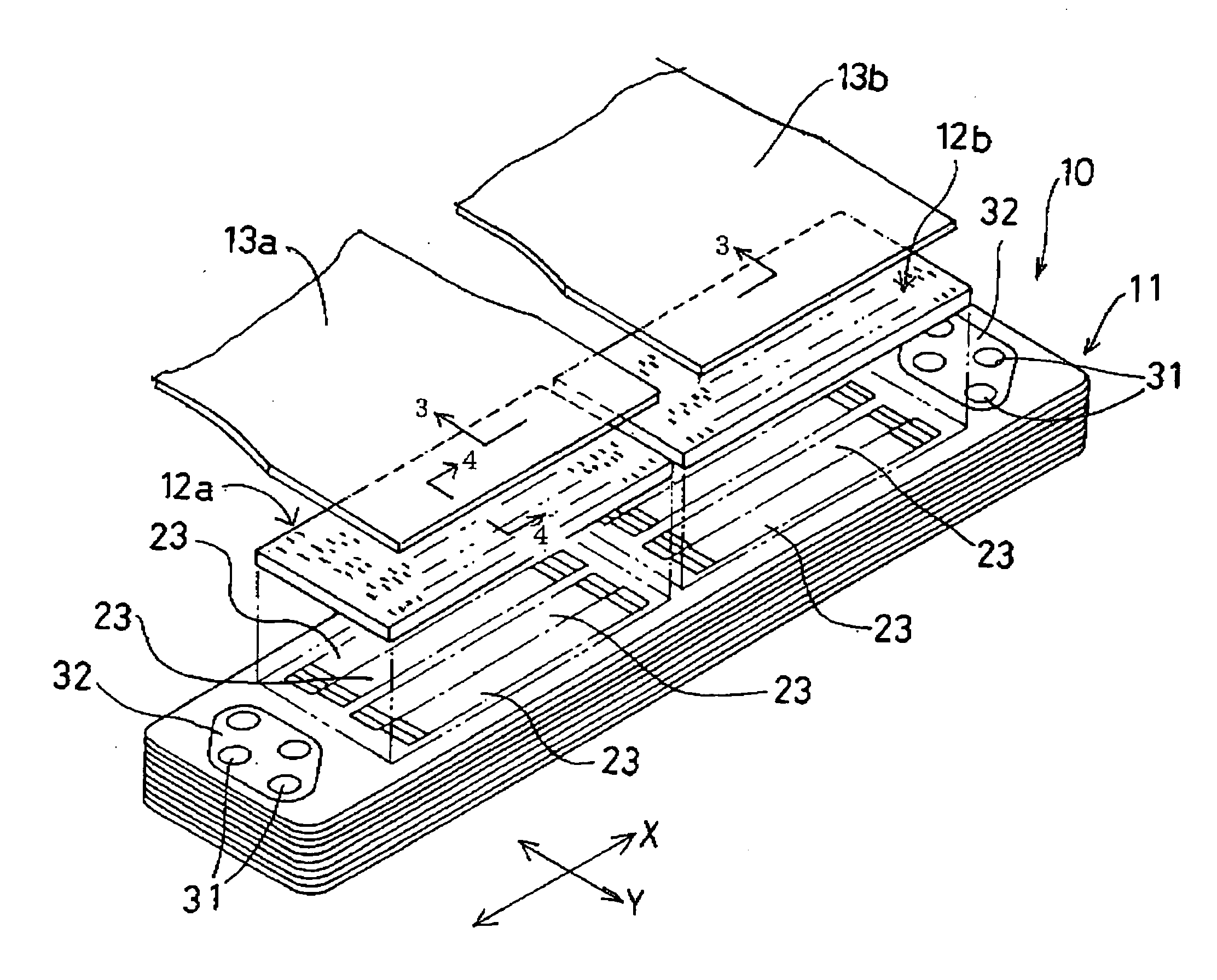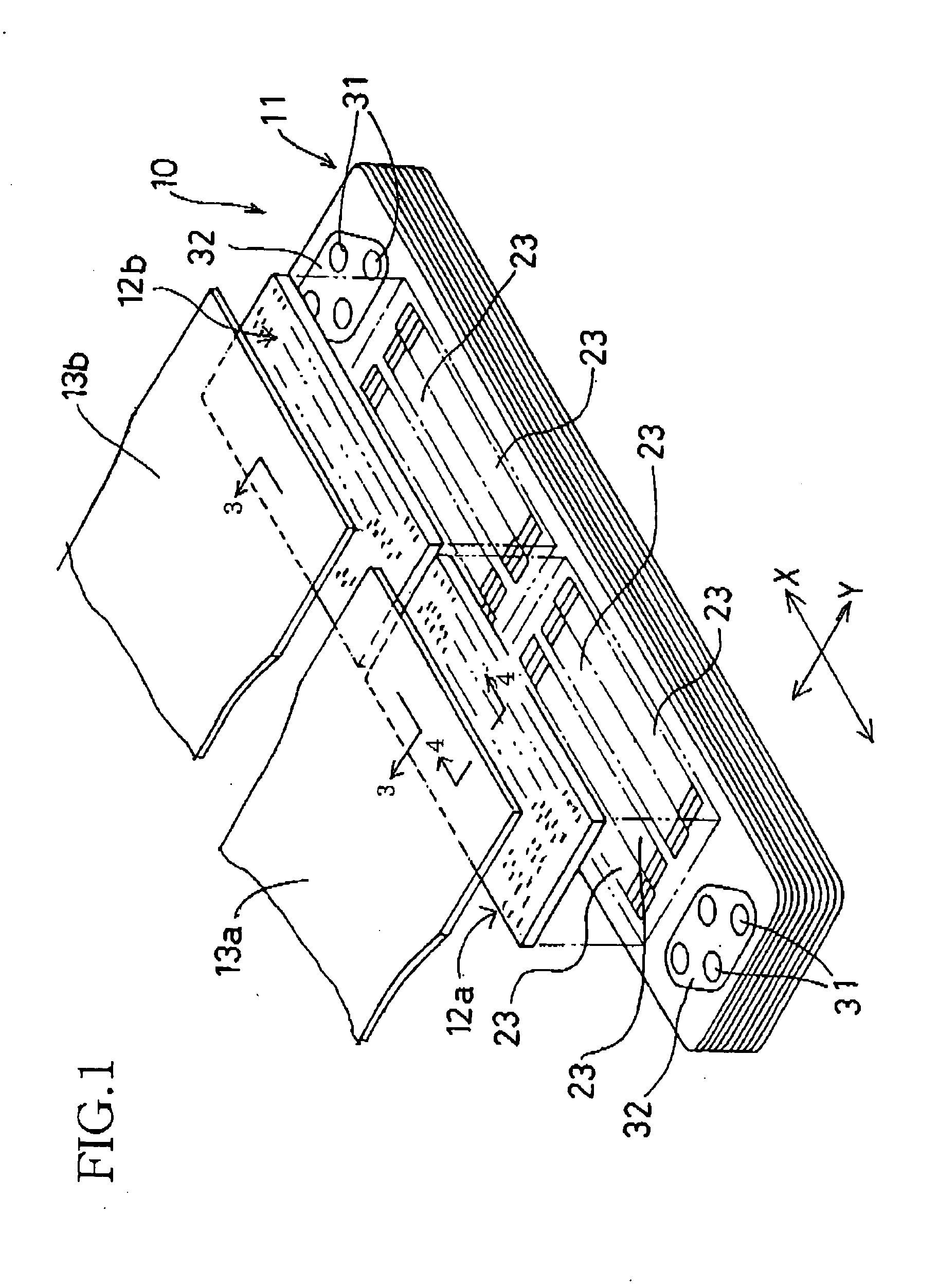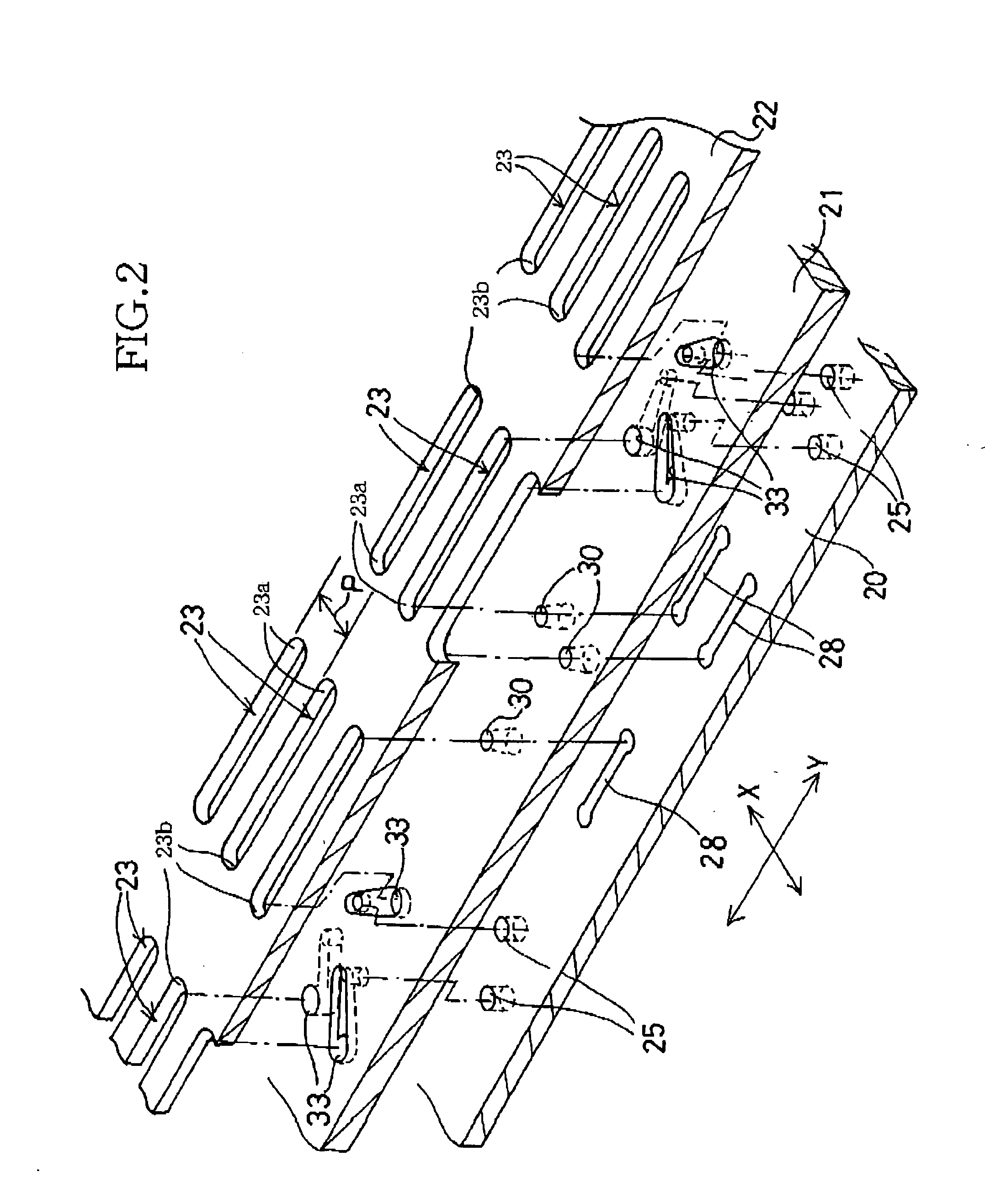Sheet-member stacked structure, lead frame, lead-frame stacked structure, sheet-member stacked and adhered structure, and ink jet printer head
a technology of stacked structure and adhered structure, which is applied in the direction of printing, thin material processing, article separation, etc., can solve the problems of leaking ink, time-consuming and cumbersome operation, and leaving some amount of adhesive on the outer surface of the integral structure, so as to achieve low cost and record an image with accuracy
- Summary
- Abstract
- Description
- Claims
- Application Information
AI Technical Summary
Benefits of technology
Problems solved by technology
Method used
Image
Examples
first embodiment
[0070] Hereinafter, there will be described the present invention, by reference to FIGS. 1 through 6, 7A, 7B, 7C, and 8.
[0071] First, a piezoelectric-type ink jet printer head 10 to which the present invention is applied is briefly described by reference to FIGS. 1 through 4. In FIG. 1, the piezoelectric ink jet printer head 10 includes, in an order from its bottom to its top, a channel unit 11 constituted by a plurality of stacked metal sheets; two piezoelectric actuators 12a, 12b each of which is constituted by a plurality of stacked piezoelectric sheets; and two flexible flat cables 13a, 13b each as a cable member for connecting a corresponding one of the two piezoelectric actuators 12a, 12b to an external device, not shown. The channel unit 11, the piezoelectric actuators 12a, 12b, and the flexible flat cables 13a, 13b are stacked on each other, and are adhered to each other with an adhesive.
[0072] As shown in FIGS. 3 and 4, the channel unit 11 is constituted by nine thin sheet...
first modified embodiment
[0115]FIG. 7A shows the first embodiment shown in FIGS. 1 through 6. In this modified embodiment, each of the first and second bridge portions 53, 54 connected to each one of the sheet members 14 through 22 includes, as a portion thereof that is near to a corresponding one of the short-side and long-side end portions of the each sheet member 14 through 22, a weakened portion 61 which is formed, by, e.g., etching, to have a groove and accordingly a thickness smaller than that of the remaining portion of the each bridge portion 53, 54.
[0116] In the first modified embodiment shown in FIG. 7A, since shearing forces used to cut off the bridge portions 53, 54 are concentrated to the respective weakened portions 61 of the bridge portions 53, 54 that are low in strength, each of the sheet members 14 through 22 can be easily removed from the corresponding frame portion 52 and one or two adjacent sheet members 14 through 22 that is or are located adjacent the each sheet member. In addition, a...
second modified embodiment
[0117]FIG. 7B shows the present invention in which each of the first and second bridge portions 53, 54 includes a different weakened portion 61 having a recess. For example, in the case where a thickness of each of the bridge portions 53, 54 is considerably small, the each bridge portion 53, 54 including the weakened portion 61 can enjoy a sufficiently high strength while allowing each sheet member 14 through 22 to be easily removed from the corresponding frame portion 52 and one or two adjacent sheet members 14 through 22.
PUM
 Login to View More
Login to View More Abstract
Description
Claims
Application Information
 Login to View More
Login to View More - R&D
- Intellectual Property
- Life Sciences
- Materials
- Tech Scout
- Unparalleled Data Quality
- Higher Quality Content
- 60% Fewer Hallucinations
Browse by: Latest US Patents, China's latest patents, Technical Efficacy Thesaurus, Application Domain, Technology Topic, Popular Technical Reports.
© 2025 PatSnap. All rights reserved.Legal|Privacy policy|Modern Slavery Act Transparency Statement|Sitemap|About US| Contact US: help@patsnap.com



